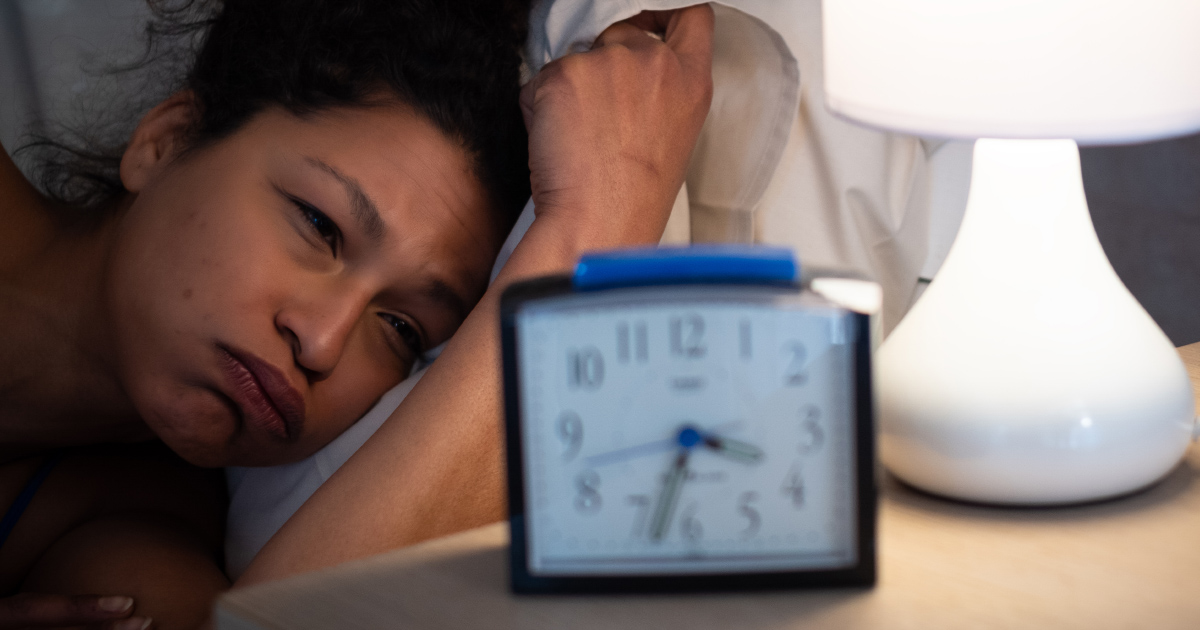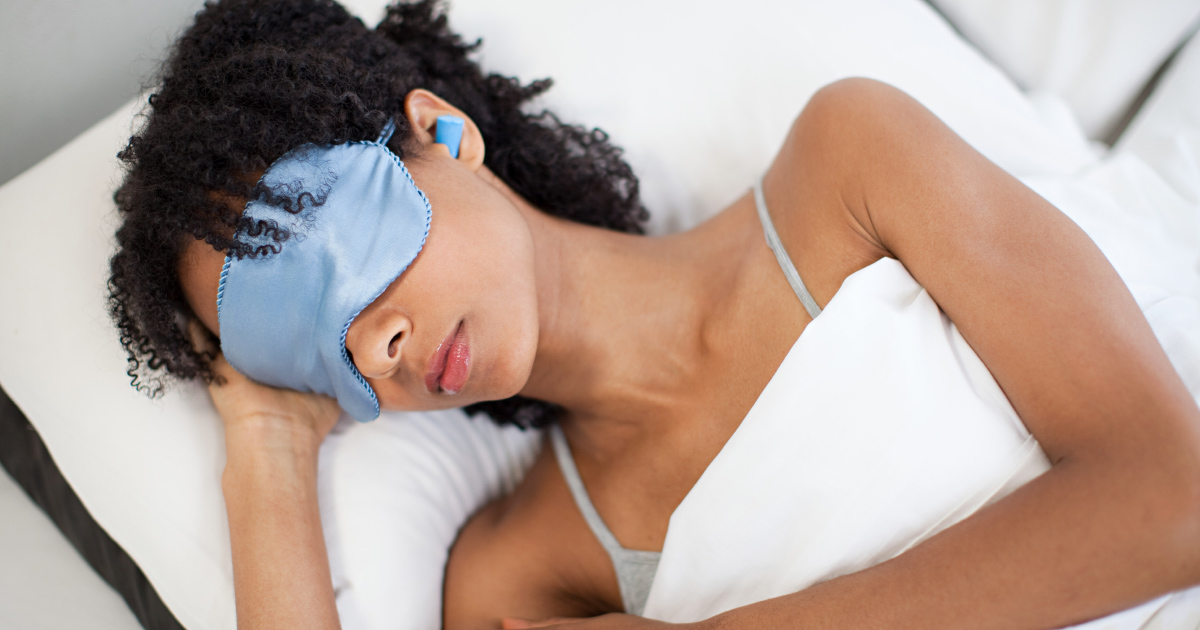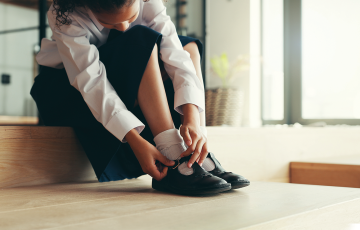Don’t lose sleep over insomnia

Tossing and turning at night, dragging yourself through the next day… This is no way to live and you don’t have to. Once you know what keeps you awake, there are ways to solve the problem.
Insomnia is more than just struggling to fall asleep. It’s also about how well you sleep and how you feel afterward. Even if you get eight hours per night, you might still be suffering from insomnia if you go through the next day feeling tired and grumpy, struggling to concentrate, lacking energy, having mood swings and not doing your best work.
About 30 to 40 percent of adults suffer some level of insomnia within any given year, and about 10 percent to 15 percent indicate that the insomnia is chronic and/or severe. The prevalence of insomnia increases with age and is more common in women, according to SASSM (The South African Society of Sleep Medicine).
There are different kinds of insomnia. Transient insomnia lasts for up to three nights. Acute insomnia is brief and often happens because of some detail in your life – the night before a big event or the night after hearing upsetting news (caused by stress, death, divorce, etc). This kind will go away by itself.
FINDING THE CAUSES
Insomnia is considered a symptom – the real reason for your bad nights is something else. It could be basic, like having coffee after supper or sleeping next to a snorer. It could be more complicated, like a medical issue or stress.
Some people will need professional help to overcome insomnia. But first, take a close look at your problem. You might find causes for which there are simple solutions.
Start with your body. Medical conditions such as asthma, sleep apnea, and arthritis can disrupt sleep. So could hormone shifts during menstruation. Talk to your doctor and also ask about side-effects of any medication you’re taking.
Don’t fear sleeping. Tell yourself that everyone sleeps; it might take you time, but you will fall asleep eventually. As your negative emotions such as frustration or even panic about not sleeping subside, your stress response should switch off and you may well find yourself nodding off.
Look at your diet. Try to eat dinner earlier in the evening, and avoid heavy, rich foods within two hours of going to bed. Spicy or acidic foods can cause stomach trouble and heartburn which can wake you during the night. But don’t go to bed hungry, either.
The American Academy of Sleep Medicine recommends that you pass on caffeine from at least six hours before bedtime. And while a nightcap may help you to relax and fall asleep, it messes with your sleep cycle.
EXERCISE CAN HELP YOUR INSOMNIA
Getting outside early in the day can help you to sleep better and get to sleep at the right time. Get some outdoor exercise every day, even if it’s only walking around the block during your lunch hour. Just 30 minutes of this will make a difference.
Next, your mind. If you wake during the night feeling anxious about something, make a brief note of it on paper and postpone worrying about it until the next day when it will be easier to sort out.
It might not be that simple, though. Interrupted or insufficient sleep, as well as frequent nightmares, can lead to depression or anxiety. It can also work the other way round. Getting professional help can help you improve the quality of your sleep.
PRACTICE GOOD SLEEP HYGIENE
Now examine your sleep space. Noise, light and a bedroom that’s too hot or cold can interfere with sleep. Try earplugs to mask outside noise, an open window or fan to keep the room cool, blackout curtains or an eye mask to keep out light. Find out what mattressworks best for you (firmer or softer) and get a pillow that keeps your spine in line no matter in what position you snooze.
Some studies suggest that light from televisions, smart phones and other screens at bedtime can affect natural levels of melatonin, a hormone that regulates the sleep-wake cycle. Lower levels mean falling asleep will take longer. The Rensselaer Polytechnic Institute found that backlit tablets, also, can affect sleep patterns.
All the more reason not to use screens in bed. Next is training your brain and body to think of your bedroom as a place for nothing but sleep. So no working, no TV, no laptop or tablet in there. If you need an alarm, turn it so you can’t see the digits and end up staring at them when you’re struggling to sleep.
After all that, you might still find yourself lying awake, staring at the ceiling and listening to the rest of the household snoring peacefully. What then?
RELAX YOUR MIND
Try a relaxation technique such as visualisation. Picture something you enjoy seeing – a scene, a place, maybe an object – and focus on it until everything else fades away. Even if this doesn’t put you to sleep, you’ll be relaxing and that also refreshes the mind and body. Try this simple trick: close your eyes and slowly roll them upwards a few times.
Like clock-watching, tossing and turning will increases anxiety. If you’ve been awake for more than 20 minutes, leave the bedroom and go do something relaxing such as reading, drinking herbal tea, or taking a bath. Keep the lights low, avoid screens and don’t go back to bed until you’re genuinely sleepy.
A few nights of insomnia isn’t unusual and for most people, it won’t be a serious worry. But if it goes on for longer, starts to worry you and makes you feel less than fine during the day, talk to your doctor. There are all kinds of treatments from medication to therapy that can help.
Sources: www.sleepfoundation.org, www.mayoclinic.org, www.medicalnewstoday.com, www.helpguide.org, www.sleepcycle.com, www.onemedical.com
Related articles

Latest Jet club magazine
We’ve got the latest trends, exciting prizes and exclusive savings just for you!
Jet Club will not pass your details to anyone else. By clicking the subscribe button you confirm you have read and agree to the Jet Club Terms and conditions and Jet Club Privacy Statement.
Subscribe



